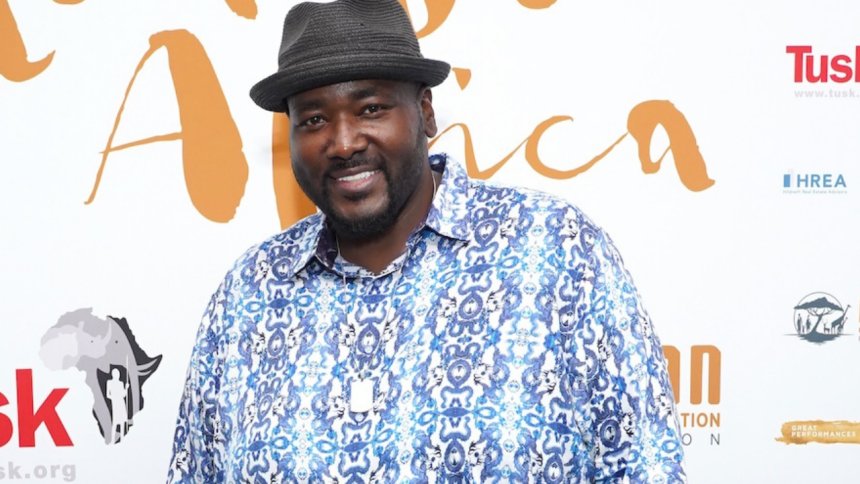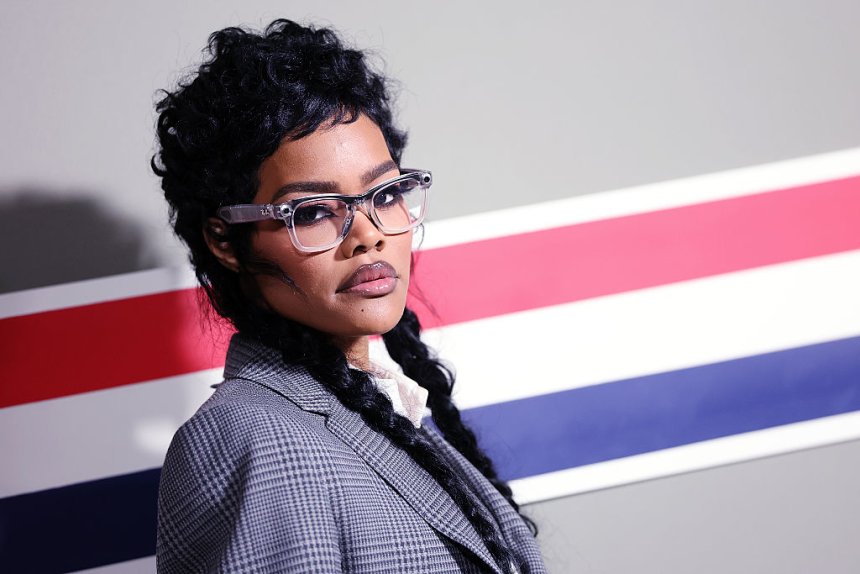The revolutionary meaning of Grenada’s ‘Jab Jab’ and why more Black Americans should travel to Spicemas
Grio Green Book: “Playing Jab” at J’ouvert in Grenada is unlike any other carnival celebration. TheGrio got a front row

Grio Green Book: “Playing Jab” at J’ouvert in Grenada is unlike any other carnival celebration. TheGrio got a front row seat to Spicemas and the Caribbean island to see heritage, Black pride, and Grenadian culture in action.
It’s a sight that will stop you dead in your tracks. Brown bodies covered in black oil from head to toe. Shining like onyx stones in the sun. Helmets adorned with horns curved upward, sometimes accompanied by red, bloodied mouths, never far from a drum with a hypnotizing beat. Whether you are terrified or intrigued, there’s only one place on earth where these cultural masterpieces walk freest in their element: Grenada. Welcome to the land of Jab Jab and Spicemas.
As a journalist and storyteller, I’d long heard about Spicemas in Grenada. I knew it as the weeklong cultural tradition during carnival season — a time for revelry, heritage, and economy-boosting tourism. With the best fetes (parties) on this side of the equator, stadium-packed concerts, and island-fresh food from restaurants to the street, thousands of visitors pour into Grenada in search of a good time. This year, as part of the Spicemas Press Posse, I joined them for multiple aspects of the celebration.
I’ve visited many carnivals over the years, but coming to Spicemas to see the men (and women) in black, known as jab jabs or “devils,” was on my lifelong bucket list. In a world where people are bombarded with advertisements to lighten and “brighten” their skin, where little Black girls in classic literature wish for bluest eyes, and children are still told not to play in the sun too long lest they tan, here in the universe of Grenada, the rules were reversed like Uno. The blacker the better.
I’d seen a jab before I knew what a jab was, back in 2000, in Jay-Z and UGK’s “Big Pimpin” video, as they floated across the TV screen through Hype Williams’ lenses on another Caribbean island (Trinidad).
His all-black skin and horns were striking.
As soon as I touched down in Grenada, I was on a mission to see jab jabs in motion, to understand the history behind how Blackness became supreme here, and to unpack the sometimes misunderstood tradition of dressing up as a jab. Was this really about devils or something deeper?
From banned to Black supremacy
To understand “jab jab,” you must understand the celebrations they come from. In the early 17th century, enslaved Black people in Grenada and other parts of the Caribbean watched their European masters partake in fancy carnival celebrations during Lent with lavish costumes and dancing. After brutal workdays in the fields, Black people found themselves forbidden from joining festivities, so they decided to create their own.
Carnival became a time of both mocking their oppressors and finding personal joy, complete with political pageantry, where they dressed as various characters and wore costumes with special meaning and critiques. There were “fancy” carnivals, the kind many Americans are familiar with thanks in part to the commercialization of rhinestone and feather costumes, often bikini-style with headpieces. (Today, these are open to anyone from around the world who can pay and join a band, and these “pretty mas” carnivals capture the authentic beauty of Caribbean music and people.)
Then there was J’ouvert, derived from the word “daybreak,” where those who aren’t afraid to get dirty would come out in the dark of night, blacken their skin with mud or oil, play drums, and party until the sun came up. Drums were often used to summon spiritual fortitude for revolts (which were common in the Caribbean, including Grenada). While many modern carnival celebrations include j’ouvert, the true originator of j’ouvert in the spirit of Jab Jab is Grenada.
Today, modern J’ouvert celebrations allow anyone to join a band and get plastic helmet horns, skin-safe oil, and a drink cup to participate. But no one does true J’ouvert with jab like Grenadians, and that’s because Jab goes far beyond playing dress up.

“Jab is a masquerade — you’re shrouded in resistance and revolt,” says Ian Charles, a historian and influential artist who plays Jab music, who came to speak with our group of journalists at the Sandals Resort in Grenada. “The color of the jab, which is black, is more than just being dark and black. [It is] what was demonized, because being black was the wrong thing. It was negative.”
Charles explained how each aspect of the Jab costume has meaning — from the horns on their head to the chains they drag behind them on the streets where the masquerading takes place.
“That is the look. But you are not the devil. You are just using the nonsense via ridicule, satire, to show this. Remember, you don’t have no gun, you have no knife, you have no bomb, you had nothing. So you have to use the intangibles right now to really resist,” he says.
“The chains on J’ouvert morning is a massive symbolism of freedom. These same chains were used on the transatlantic slave trade coming to the Caribbean. Many thousands lost their lives. J’ouvert morning, the chains on the road represent freedom. Break free. Physically but also mentally… See, we’re still working on the mental aspects of it because of 200-plus years of slavery.”
It’s a thought that stuck with me as I watched online debates emerge in real time while people prepared to play jab and participate in the streets of Grenada. As “jab jab” trended, some more religious and superstitious corners of the internet wondered aloud whether people were actually trying to be or summon devils with their costumes.
The answer from the Jab Jab practitioners I spoke with was clear: absolutely not.
“It is critical right now to rewrite the Eurocentric narrative of what jab is. You cannot tell me what my culture is,” Charles says.
“My entire family is staunch Catholics. You know, but my uncles sing, sang, and produced rebel music. They produced Jambalasee, and even before that, they were singing some serious Afro-centric music. So, no matter my grandparents and whatnot, who are heavy Catholics, you just have the energy.”
Charles still cautions against those who participate in Grenada carnival without appreciating the history. From hypersexualization in the celebratory aspects of “freeing up” oneself to stripping the masquerade from the meaning, he believes more revelers should take time to learn before putting on paint.
Does everyone ‘Play Jab’?
Like every country, there is a diversity of thought and perspective about even the most long-held traditions. Not everyone in Grenada necessarily participates in playing Jab during the carnival season of Spicemas.
While roaming through the town of Paraclete visiting a traditional Jab Jab camp as they prepared for the upcoming J’ouvert celebration on Carnival Monday, I met a Christian pastor who explained that he snuck out of his extremely religious household once to play jab decades ago and never did again after a scolding from his mother.
“Culture is dynamic. The food you eat is the culture, the way you interact with people is the culture, because you wear the culture. And what is not culturally accepted today is tomorrow.”
For him, Grenada’s culture is embodied in a different form of Afrocentric resistance: maroonage. Maroons were escaped enslaved Africans who left plantations and found their way to freedom across the Caribbean. There were maroons in Jamaica, Puerto Rico, and many countries, including Grenada, each with a distinct way of being in the world.

(Natasha S. Alford/TheGrio)
“The maroon was, I have my lands to work, so you come with me this Saturday or this Sunday, and I go with you,” he recalls. “We walk each other’s lands and we reap with each other, and that was the kind of comradery that took place. You had a group of young people who would make sure that the elderly had support. They would go around, help them clean the yard, clean the house, help them to cook, put in the water. The community life.”
After listening to the pastor, I turned my sights back to the Jab Jab camp and watched as the locals laughed, covered themselves in oil, sang soulful songs with drums and conch shells, and paraded on beat through the town. I watched as they helped each other cut vegetables, season meat, and team up to make a massive pot to make “oil down,” the national dish of Grenada, which they generously shared with us all. I stared over a large cloth sign they had just unfurled with words painted in red and black and smiled as I read it:
BLACKA DAN BLACK.
Community. With or without black oil on their bodies, this is what Grenadians stood for.
Playing Jab on J’ouvert morning
A few days later, waking up at 3AM on Monday morning for J’ouvert and getting through the thick crowds of people playing Jab down to the streets of St. George’s, I saw that value in practice everywhere. Whether dancing in sync through the streets or beating drums, or making statements about politics and current affairs with signs on their costumes, people made noise even if they didn’t utter a word.
As the Grenadian heat grew more intense, people extended a hand if someone needed a drink of water, a place to sit, or a quick snack to fuel themselves for the miles ahead. Lost phones were returned quickly. Whether scantily clad or fully clothed, straight or queer, male or female, you could walk free. It felt safe.
Blackness shrouded the roads and became more pronounced as the sun rose higher. People danced and marched to the beat of DJ’ed jab jab songs like “Payroll” by Muddy or “Capital Anthem,” by Capital Jab. But they also moved to the literal beat of their own drums.
There were revelers from all over the world, but this was unquestionably a mostly Black celebration — Black Americans, Black Brits, Nigerians, Bajans and more — the African Diaspora all converging with our various accents on the roads. The diversity extended to class and titles: politicians, ambassadors, and professors partied alongside workers. Children dragged chains, and elderly men and women chipped down the road. No matter our differences, at Spicemas we were one.

That j’ouvert morning, we looked like a pulsing jet-black heartbeat. When I danced, I felt the familiarity of my own cultures’ merengue beats and hip hop rhythms in the Jab Jab music I heard.
Walking through the streets, when I picked up on American accents, we gave head nods and waves to each other, excited to know that someone else had found the best-kept secret of carnival was right here at Spicemas. In a commercialized travel culture where it can feel like only the richest celebrities and biggest influencers can buy their way into a carnival experience, there was a purity about Grenada’s jab jab experience that reminded you of our oneness as a people.
We didn’t need much but ourselves and Black oil to have a good time. Jab was for the people.
As I thought back to walking the hills of the Grenada countryside and now the streets of the capital, preparing to board a boat to the beach and wash off my oil in the ocean water, I couldn’t help but think of one man who quietly bridged Black America and Grenada for generations: Malcolm X.
Malcolm’s mother was Louise Little, native-born to Grenada before she moved to Canada and then the United States. She was a Pan-Africanist who married an African American man and raised one of the most influential Black men in history.
“You can’t hate the roots of the tree without ending up hating the tree… You can’t hate Africa without ending up hating ourselves,” Malcolm X once said. “We cannot think of being acceptable to others until we have first proven acceptable to ourselves.”
Here in Grenada, I saw firsthand what it meant to be acceptable to yourself.
To see yourself as beautiful. As worthy of revelry. As part of a beloved community.
As Black. As good.
I imagined how transcendent it must’ve been back then for our ancestors trapped by chains. And it was in that moment, I understood why freedom must be celebrated.

Natasha S. Alford is the Senior Vice President of TheGrio. A recognized journalist, filmmaker, and TV personality, Alford is also the author of the award-winning book, “American Negra.” (HarperCollins, 2024) Follow her on Twitter and Instagram at @natashasalford.
Share
What's Your Reaction?
 Like
0
Like
0
 Dislike
0
Dislike
0
 Love
0
Love
0
 Funny
0
Funny
0
 Angry
0
Angry
0
 Sad
0
Sad
0
 Wow
0
Wow
0

















